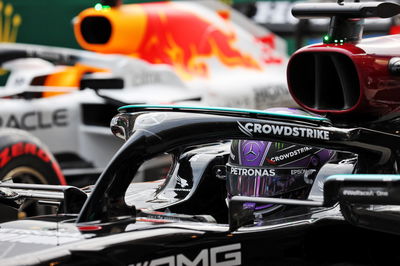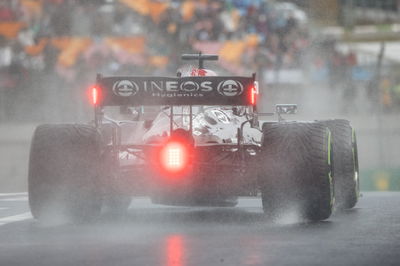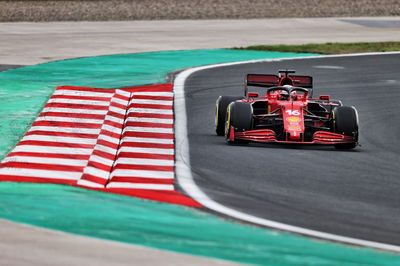Mercedes to ‘contain' ICE issues after "unusual noises"

Championship leader Lewis Hamilton has been hit with a 10-place grid penalty for this weekend’s Turkish Grand Prix amid “question marks” Mercedes has over the reliability of its power unit.
It follows a string of recent problems that has forced Hamilton’s Mercedes teammate Valtteri Bottas to use three new engines across four events since the summer break.
Speaking after qualifying in Turkey, Wolff conceded Mercedes will now have to manage the issues until the end of the season, rather than implementing fixes.
“It’s tricky,” Wolff said. “When you start to push the boundaries with power unit performance at a certain stage you will experience some obstacles.
“Our power units have been the most reliable since introduction of the hybrid engines in 2014 and because these boundaries are being pushed, we have seen examples of unusual noises within the combustion engine that aren’t completely understood at this stage and therefore caused some trouble in the past.
“We had engines that basically failed and now it’s about containing the problem, because in that phase redesigning parts is not something you would tackle.”
Wolff revealed the issues are specifically related to the internal combustion engine - the component Mercedes changed on Hamilton’s car for this weekend - and that the problem is “not necessarily only mileage” but also about “understanding a different reliability topic”.

“The other parts like the turbo and all the other auxiliary elements are in wonderful shape and really happy,” he explained. “They are easily within the mileage limits and therefore we didn’t need to take new components.”
As well as the fourth ICE added for this weekend, Hamilton also has engine number three that was introduced at the Belgian Grand Prix in August still in his pool, along with a much older mileage unit. He lost one of his power units in a stoppage during practice at Zandvoort.
Wolff said Mercedes will now try to get through the remaining seven events - including Sunday’s race - without having to take another engine penalty.
“It was clear that we need to take the fourth one, the question is how and when do we want to deploy power unit number three, which is still in the pool,” Wolff added.
“That’s something we need to access over the coming races. You could decide to run it only on Fridays or also run it on Saturday or Sunday.”
Engine development will be frozen from next season, meaning teams will be stuck with the power units they develop for 2022 until the next generation of engines are introduced, a move which is currently planned for 2026.
But Wolff remains confident that the reliability issues Mercedes is currently facing should be understood and rectified ahead of next year.
“I think balancing performance and reliability has always been the key metrics in the last couple of years and it will also be going forward,” he said.
“We will not be carrying any deficits into next year because the deficits are being understood and now it’s about finding solutions to contain these.”












